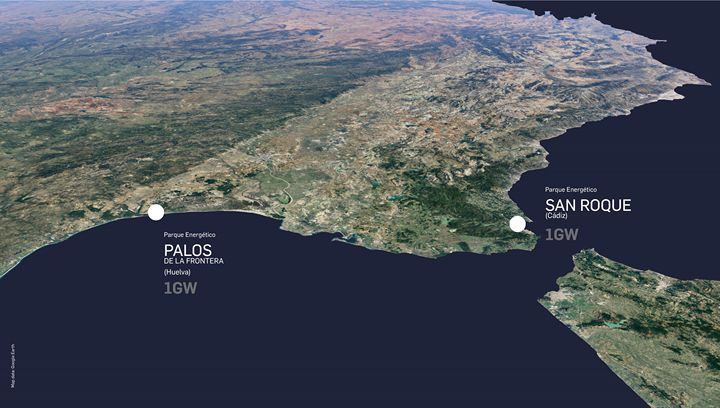Spanish energy firm Cepsa has selected thyssenkrupp nucera and Siemens Energy as its preferred suppliers for the Andalusian Green Hydrogen Valley in southern Spain, which is claimed as one of the largest projects of its kind in Europe.
One of the largest order till date in terms of capacity, thyssenkrupp nucera and Siemens Energy are to account for about for 400MW of electrolyzers in the first phase of a 1 GW green hydrogen plant proposed at the La Rabida refinery located in the port city of Huelva.
While thyssenkrupp nucera is set to provide a 300 MW electrolyzer, as per the agreement announced at the World Hydrogen Summit in Rotterdam yesterday (May 13), Siemens Energy has been selected for 100 MW.
The first phase of the Andalusian Green Hydrogen Valley entails a green hydrogen production plant at Cepsa's La Rábida Energy Park in Palos de la Frontera (Huelva) as part of their partnership with Fertiberia. With a production up to 47,000 tons green hydrogen per year, it will form part of Cepsa's wider plans to develop 2 GW of green hydrogen capacity in southern Spain by 2030.
"We are very pleased to be working with an innovative partner to create one of the largest hydrogen valleys in Europe and to contribute to Cepsa's path to a gigawatt capacity," said Dr. Werner Ponikwar, CEO of thyssenkrupp nucera. The company, with its high-efficiency alkaline water electrolysis technology, will assist in the design and engineer of the facility through to the Final Investment Decision (FID).
Siemens Energy, on the other hand, will deploy Proton Exchange Membrane (PEM) electrolysis technology. Cepsa has to use both technologies as part of a multi-supplier approach to creating a European value chain for green hydrogen as an important mean to achieve decarbonization goals.
"We are delighted to be part of Cepsa's 'Green Hydrogen Valley' project, as there will be no energy transition without green molecules", said Alexey Ustinov, Head of Sustainable Energy Systems at Siemens Energy.
The industry is ready, production capacity of electrolyzers is no longer the bottleneck in ramping up the hydrogen economy. Our Berlin multi-GW electrolyzer factory is a good example of this. But we need a faster pace of funding approvals and fewer technocratic hurdles to ensure that such projects can make their decisive contribution to decarbonization across Europe", he noted.
The renewable energy required for the production process for the hydrogen project is to come from solar and wind energy, which is plentiful in southern Spain, making it one of the most competitive places in Europe for green hydrogen production.

bp announces Green Hydrogen cluster in Spain’s Valencia region
Read More

